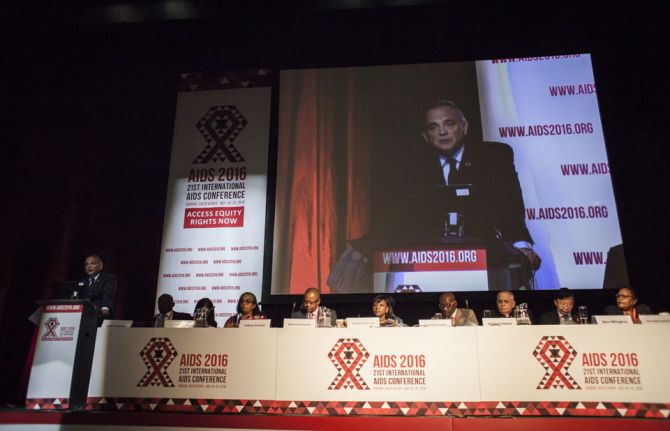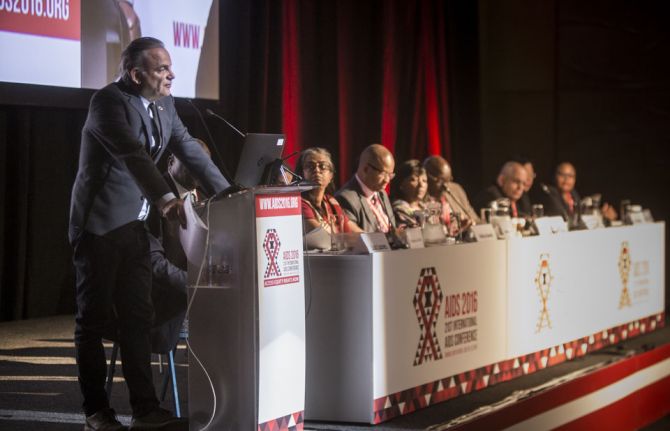



Update
New global push to close paediatric HIV treatment gap launched
20 July 2016
20 July 2016 20 July 2016Leading stakeholders involved in paediatric HIV treatment joined together in a special session on 19 July at the 21st International AIDS Conference, being held in Durban, South Africa, to launch an urgent global push to end paediatric AIDS by 2020. In particular, the session focused on reaching the global target of at least 1.6 million children accessing antiretroviral therapy by 2018.
Sustained gains in preventing new HIV infections among children have laid the groundwork to end paediatric AIDS at least a decade sooner than the global target for the epidemic as a whole. However, to end paediatric AIDS, prevention efforts will need to be matched by an equally robust effort to address the treatment needs of children living with HIV.
While children (aged 0–14 years) accounted for 5% of people living with HIV in 2015, they represented 10% of all AIDS-related deaths. Half of all children who acquire HIV perinatally die by their second birthday unless they receive antiretroviral therapy, with peak mortality occurring at 6–8 weeks of life.
Participants in the session included Raymonde Goudou-Coffie, Minister of Health and Public Hygiene of Côte d’Ivoire, Molotsi Monyamane, Minister of Health of Lesotho, David Parirenyatwa, Minister of Health and Child Welfare of Zimbabwe, and high-level representatives of the United Nations Children’s Fund, the World Health Organization, the Elizabeth Glaser Pediatric AIDS Foundation, ELMA Philanthropies and Caritas Internationalis.
The session resulted in an urgent call to increase political commitment for paediatric HIV treatment, rapid scale-up of point-of-care diagnostic tools for children, intensifying testing efforts for older children, strengthening service delivery and patient monitoring for mothers and their infants and expanding the array of child-appropriate antiretroviral medicines. The renewed global push to close paediatric treatment gaps support the AIDS-free component of the Start Free, Stay Free, AIDS Free framework launched by UNAIDS and partners.
Quotes
“Lesotho’s adoption of a test-and-treat approach in 2016 is the latest in a series of supportive policies adopted to address paediatric HIV as part of the broader HIV response. Lesotho is exploring innovative approaches to prevent more paediatric HIV infections and improve care for children living with HIV.”
“We have to have a plan and we need to implement this plan to meet our targets for ending paediatric AIDS.”
“There is a real coalition of efforts to end AIDS, including paediatric AIDS. Let’s not waste this opportunity. Let’s do this in a coordinated way, and let’s use UNAIDS to help with this coordination.”
“We need a focused global partnership that brings together all players, with the leadership of government at country level, along with the voices of the children, to propel us to the end of AIDS.”
“Only half of children living with HIV receive antiretroviral therapy, but in those same locations almost 80% of pregnant women living with HIV are receiving treatment. We need to engage communities to increase service uptake and promote service delivery models that are family-centred and integrated within maternal, newborn and child health services.”
“We welcome the targets in the Political Declaration on Ending AIDS to Fast-Track the 90–90–90 targets for children.”



